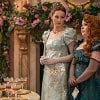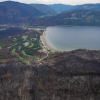Believe it or not, the list is long when it comes to prominent in Canadian history. Today, women are being honoured around the globe for fighting oppression, challenging cultural norms and advancing society.
In honour of International Women’s Day, here is a scaled down list of 25 bad-ass women in Canada who fought for equality, preservation of culture and continue to challenge the social norms of society.
1) Angelina Napolitano (1882–1932)

Napolitano's story is a tragic one. The Italian immigrant's life brought domestic abuse to the national spotlight. In 1911, she killed her abusive husband with an ax while he was asleep. She was convicted of murder and sentenced to hang. At that time, abuse could not be used as a defense and so her case ignited a public stir. Petitions were signed to save her life. The “battered woman” defense shed light on the current law. She was spared and sentenced to life in prison. She was given parole after ten years. Her story was turned into an international film in 2005 called Looking For Angelina.
2) Thanadelthur (1697–1717)

Thanadelthur was part of the Chipewyan nation. In 1713, she was captured by the Cree and kept as a slave. She escaped a year later and worked for the Hudson’s Bay Company. She became irreplaceable to HBC as she became a guide, interpreter and peacemaker between the Cree and Chipewyan around trades.
3) Marie-Madeleine Jarret de Verchères (1678–1747)

Jarret de Verchères held back an entire Iroquois raid. It is said that she managed to escape from an Iroquois warrior and ran to an undefended fort and closed the gate. From the fort, she managed to fool the Iroquois in thinking there were many soldiers inside by firing cannons. The Iroquois stopped their raid and turned back.
4) Viola Desmond (1914–1965)

Desmond was a black woman who was dragged out of a movie theatre and jailed in Nova Scotia because she refused to sit in her ‘black section.' It was 1946 and she became a significant advocate for change on behalf of Nova Scotia’s black community. Segregation legally ended in Nova Scotia in 1954.
Kelowna Now highlighted Viola Desmond in an article shown here.
5) Nellie McClung (1873–1951)

McClung was a journalist and suffragist. She worked for women’s rights and was instrumental in Manitoba becoming the first province to allow women to vote in 1916, followed by Alberta and Saskatchewan. She was the first female director of the board of the governors of the CBC and a delegate to the League of Nations in Geneva in 1938.
6) Marie Lacoste Gérin-Lajoie (1867–1945)

Lacoste Gérin-Lajoie was aware early on of the inequalities between men and women. She was intelligent but had to learn through her dad’s library collection, because universities in Quebec were closed to women. In 1908, she helped start a girls school for women who wanted to pursue higher education. She ignited the Quebec feminist movement by highlighting the women’s right to vote, education and equity under the law.
7) Mary Two–Axe Earley (1911–1996)

Two–Axe Earley lobbied to have laws changed that discriminated against First Nations women. She grew up on a Kahnawake Mohawk reserve near Montreal. She married an Irish-American and moved to Brooklyn. But after he died, she wanted to move back to the reserve. However, the laws Two–Axe Earley that Mary lost her Indian status after marrying a non-aboriginal, therefore disallowing from moving back to her reserve. She fought for 20 years to have this law reversed. By 1985, she was successful and managed to help thousands of other First Nations women.
8) Mary Shadd Cary (1823–1893)

Shadd was the first black woman newspaper editor in North America. Originally born in Delaware, she grew up in Ontario and worked as a teacher. She worked for universal education, women’s rights and black emancipation. She later moved back to the states and at 60 years of age, became the second black woman in the USA to earn a law degree. She was noted as a Person of National Historic Significance in Canada in 1994.
9) Doris Hilda Anderson (1921-2007)

Anderson was an editor of Chatelaine magazine and lobbied to have the Royal Commission on the Status of Women created. She was instrumental in having the Charter of Rights and Freedoms changed to include women’s equality rights. She received the Order of Canada, several honorary degrees and has written several books.
10) Lucy Maud Montgomery (1874–1942)

Montgomery is well-known for her creation of the beloved orphan character Anne, from Anne of Green Gables. The book was published in 1908 in PEI and was read around the world. She wrote a couple dozen novels and essays, hundreds of short stories and hundreds of poems. Her family life wasn’t easy and she fought lawsuits with her publisher, but her stories live on. Her creation of Anne challenged the norms of how women should act and speak in public.
11) Justice Bertha Wilson (1923–2007)

Wilson was the first woman to be appointed to the Supreme Court of Canada. She was born in Scotland and studied law in Canada. She worked on human rights cases and in matrimonial property. She shed light on the neutral laws that often were used to discriminate women and minorities. Wilson made great changes to neutral laws in the Canadian law.
12) Julie Payette (1963-)

Payette became the first Canadian astronaut to assemble and board the International Space Station.
13) Roberta Bondar (1945-)

Bondar is Canada's first female astronaut and was the first neurologist in space.
14) Ga’axstal’as, Jane Constance Cook (1870–1951)

Ga’axstal’as was born on Vancouver Island to missionary parents. She was well-educated and became a mediator for First Nations when colonialism had a tight grip. She worked to save access to land and resources. She later raised 16 children.
15) Adelaide Hoodless (1857–1910)

Hoodless founded the Women’s Institute. The death of her infant son prompted her to make changes in education. Her son had consumed tainted milk and she then pushed for home economics courses to be taught in Ontario. She founded the YWCA.
16) Agnes Macphail (1890–1954)

Macphail grew up in rural Ontario and was the first woman elected to the House of Commons. She worked as a school teacher and then became involved with political movements. She wrote a newspaper column and later established the Elizabeth Fry Society of Canada.
17) Lotta Hitschmanova (1909-1990)

Lotta was a humanitarian and a refugee of World War II who put Canada on the map for its efforts with international aid. Throughout the 1940's to the 1980's, she mobilized Canadians to bring aid to international refugees of war.
18) Buffy Sainte-Marie (1941-)

Sainte-Marie was born to Cree parents in Saskatchewan but was given up for adoption. She’s recognized internationally as a singer but she’s also a political activist, educator and pacifist. In 1983, she completed a PhD. She used songs to protest war and to support First Nations communities across North America.
19) Clara Hughes (1972-)

Hughes has competed for Canada in both the summer and winter Olympics. She is the only Canadian to have won medals in both the summer and winter Olympics - cycling and speed-skating.
20) Cairine Wilson (1885-1962)

Under Prime Minister William Lyon Mackenzie King’s government, Wilson was Canada’s first female senator at age 45. Prior to this, women weren’t allowed to serve in the Senate as the law deemed they were not full “persons.”
21) Sharon Wood (1957-)

In 1986, Wood became the first woman in North America to summit mount Everest. She was born in Halifax and grew up in Vancouver. From there, her passion for mountain climbing grew. In 1977, she climbed Mt. Logan, Canada’s highest mountain.
22) Deanna Brasseur (1953-)

The Ontario-born Brasseur was the first of two female CF-18 fighter pilots in the world, next to Jane Foster. She flew the CF-18 in Canada and Europe. She retired with 2,500 jet plane hours. She was one of the first of three Canadian women to gain military “wings”. She’s also known for speaking out about sexual abuse in the military.
23) Joane Humphrey (1936-2008)

Joane, or J.J. McColl was a CBC producer, actor and writer. Without any previous musical background, she produced a musical called Menopositive! The Musical. This musical still runs today in Canada and made it to Broadway in 1998. She also acted in a film featuring Jack Nicholson. She was born in Vancouver in 1936 and was the first female DJ in the city.
24) Hayley Wickenheiser (1978-)

Wickenheiser is a five-time Olympic medalist. She was the first woman to play full-time professional hockey in a position other than goalie. She has expressed a desire to now attend medical school.
25) Darby Mills (1959-)

Born in Vernon, BC, Mills was a rock star and a figure skater. She sang for the band Steelback and signed on with the Headpins in 1981. Headpins put out chart-topping tongs like Celebration, Just One More Time, and Don't It Make Ya Feel. The Headpins toured internationally and opened for KISS,Whitesnake, ZZ Top and Aerosmith. Darby Mills also released a solo LP called Never Look Back. She was given a star on Canada's Walk of Fame in 2005.
Who else inspires you that didn't make the list? Tell us your thoughts!
















